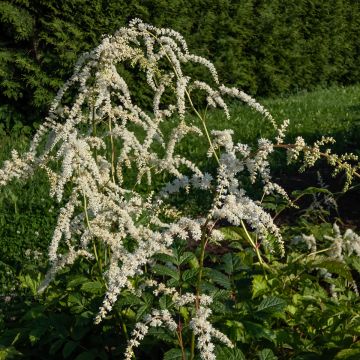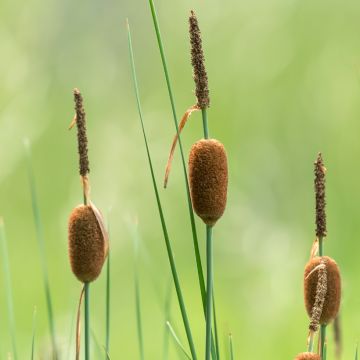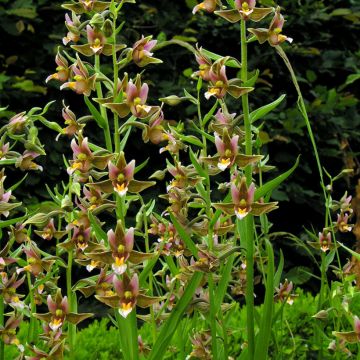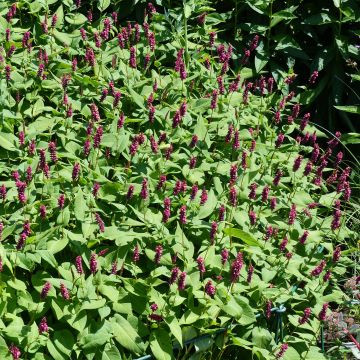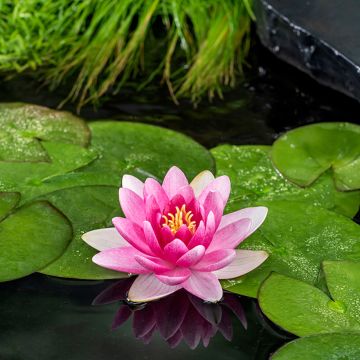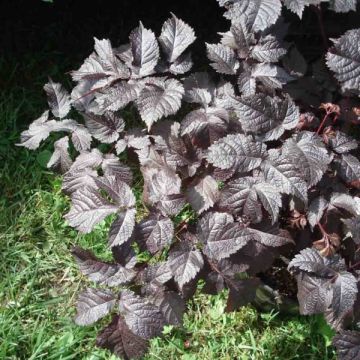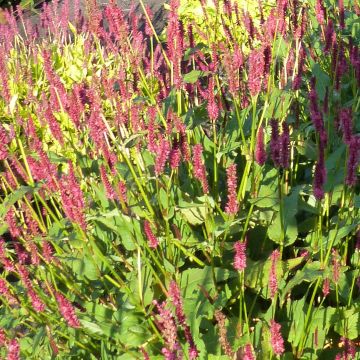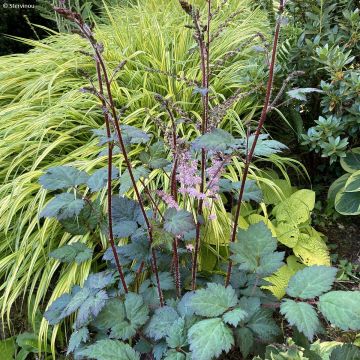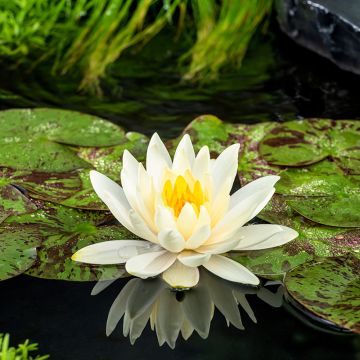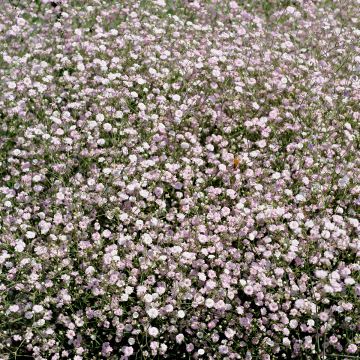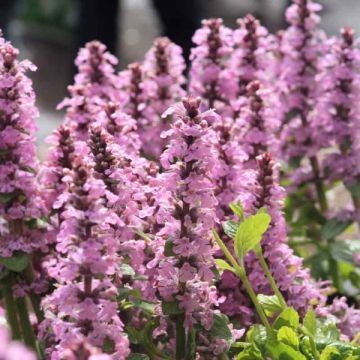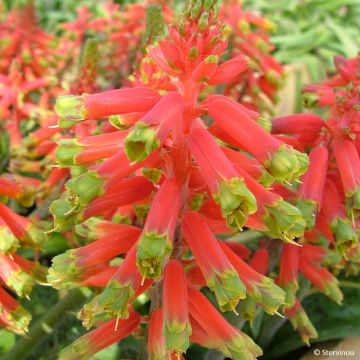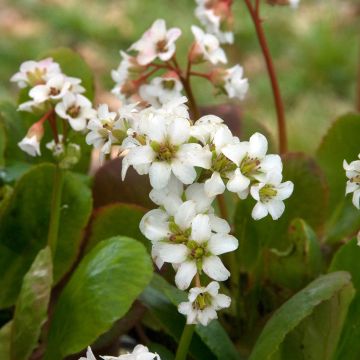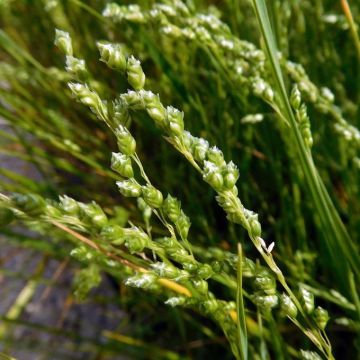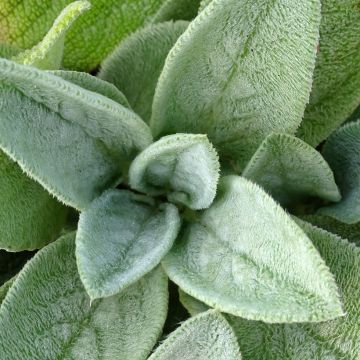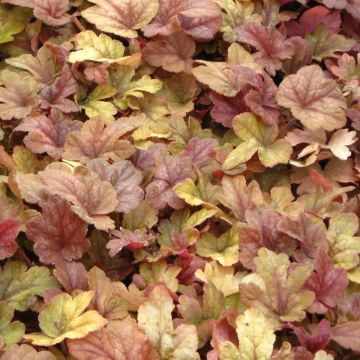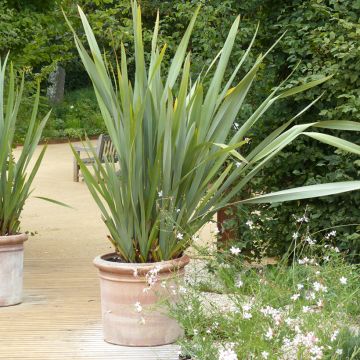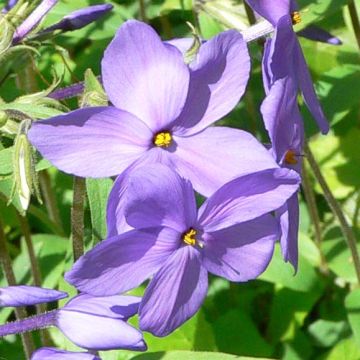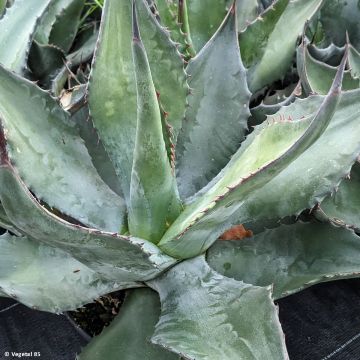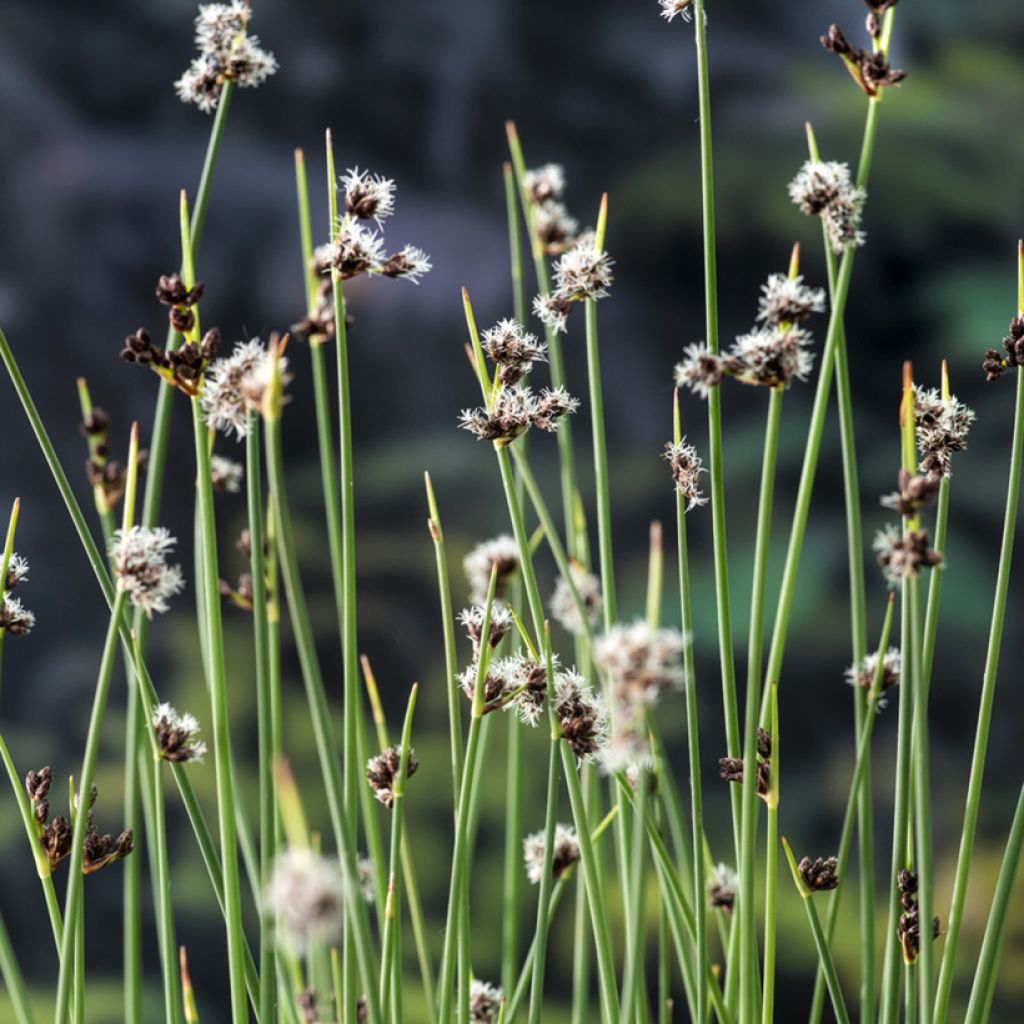

Schoenoplectus lacustris
Schoenoplectus lacustris
Schoenoplectus lacustris
Grey Club-rush
This item cannot be shipped to the selected country
Delivery charge from €5.90
More information
Schedule delivery date,
and select date in basket
This plant carries a 12 months recovery warranty
More information
We guarantee the quality of our plants for a full growing cycle, and will replace at our expense any plant that fails to recover under normal climatic and planting conditions.
From €5.90 for pickup delivery and €6.90 for home delivery
Express home delivery from €8.90.
Does this plant fit my garden?
Set up your Plantfit profile →
Description
Schoenoplectus lacustris 'Albescens', also known as acute sedge or cattail bulrush, is an elegant perennial semi-aquatic plant related to Papyrus. It forms evergreen clumps of upright, green stems, vertically variegated with white. This medium-sized sedge produces dense brown-red spikelets in the heart of summer. Ideal in muddy, wet, marshy soil, it is a must-have for submerged banks. At the edge of bodies of water, it brings brightness and verticality to aquatic scenes.
This variegated cattail bulrush is a rhizomatous and stoloniferous plant, selected in Japan. The upright stems are evergreen. Widely distributed around the globe, it belongs to the Cyperaceae family. The slow-growing plant will reach a height of about 1.2 to 1.5m (4 to 5ft) and will spread with its rhizomes over a minimum surface of 50cm (20in), which can become very significant if given enough space. Flowering takes place from June to August, in the form of clustered spherical and compact spikelets. It is followed by fruits consisting of two achenes measuring 2 to 2.5mm in length.
This sedge will naturally find its place on the banks of your ponds, in very wet areas. This plant deserves to be given space so that it can reach its full development and display all its sculptural qualities. In nature, it can form large, almost monospecific colonies. In the garden, it can be planted with other plants of the same type. It can also be used as a purifying plant. To prevent it from becoming too invasive, it can be planted in containers submerged in ponds. It tolerates gardens subject to sea spray. It is also suitable for planting in aquatic containers on patios.
Report an error about the product description
Flowering
Foliage
Plant habit
Botanical data
Schoenoplectus
lacustris
Cyperaceae
Grey Club-rush
Scirpus lacustris
Cultivar or hybrid
Other Aquatic plants
Planting and care
Schoenoplectus lacustris 'Albescens' grows in any moist, rich, clayey soil and tolerates submersion in 20 to 30cm (8 to 12in) of water very well. It is a species of marshy environments and wetlands, and can tolerate a relatively wide range of conditions depending on the season. Plant it in very moist, rich soil, even clayey or loamy-clayey, although it prefers muddy or sandy substrates. Place it in partial shade or in a sunny location. In nature, it is usually found on the banks of marshes, ponds, and slow-flowing rivers, but it can also establish itself in water, up to 2m (7ft) deep. It tolerates being out of the water for part of the year. These plants are closely associated with natural stagnant waters, which are shallow to moderately deep. It is advisable to clean them in late winter by trimming the foliage to 10cm (4in).
Planting period
Intended location
Care
This item has not been reviewed yet - be the first to leave a review about it.
Evergreen perennials
Haven't found what you were looking for?
Hardiness is the lowest winter temperature a plant can endure without suffering serious damage or even dying. However, hardiness is affected by location (a sheltered area, such as a patio), protection (winter cover) and soil type (hardiness is improved by well-drained soil).

Photo Sharing Terms & Conditions
In order to encourage gardeners to interact and share their experiences, Promesse de fleurs offers various media enabling content to be uploaded onto its Site - in particular via the ‘Photo sharing’ module.
The User agrees to refrain from:
- Posting any content that is illegal, prejudicial, insulting, racist, inciteful to hatred, revisionist, contrary to public decency, that infringes on privacy or on the privacy rights of third parties, in particular the publicity rights of persons and goods, intellectual property rights, or the right to privacy.
- Submitting content on behalf of a third party;
- Impersonate the identity of a third party and/or publish any personal information about a third party;
In general, the User undertakes to refrain from any unethical behaviour.
All Content (in particular text, comments, files, images, photos, videos, creative works, etc.), which may be subject to property or intellectual property rights, image or other private rights, shall remain the property of the User, subject to the limited rights granted by the terms of the licence granted by Promesse de fleurs as stated below. Users are at liberty to publish or not to publish such Content on the Site, notably via the ‘Photo Sharing’ facility, and accept that this Content shall be made public and freely accessible, notably on the Internet.
Users further acknowledge, undertake to have ,and guarantee that they hold all necessary rights and permissions to publish such material on the Site, in particular with regard to the legislation in force pertaining to any privacy, property, intellectual property, image, or contractual rights, or rights of any other nature. By publishing such Content on the Site, Users acknowledge accepting full liability as publishers of the Content within the meaning of the law, and grant Promesse de fleurs, free of charge, an inclusive, worldwide licence for the said Content for the entire duration of its publication, including all reproduction, representation, up/downloading, displaying, performing, transmission, and storage rights.
Users also grant permission for their name to be linked to the Content and accept that this link may not always be made available.
By engaging in posting material, Users consent to their Content becoming automatically accessible on the Internet, in particular on other sites and/or blogs and/or web pages of the Promesse de fleurs site, including in particular social pages and the Promesse de fleurs catalogue.
Users may secure the removal of entrusted content free of charge by issuing a simple request via our contact form.
The flowering period indicated on our website applies to countries and regions located in USDA zone 8 (France, the United Kingdom, Ireland, the Netherlands, etc.)
It will vary according to where you live:
- In zones 9 to 10 (Italy, Spain, Greece, etc.), flowering will occur about 2 to 4 weeks earlier.
- In zones 6 to 7 (Germany, Poland, Slovenia, and lower mountainous regions), flowering will be delayed by 2 to 3 weeks.
- In zone 5 (Central Europe, Scandinavia), blooming will be delayed by 3 to 5 weeks.
In temperate climates, pruning of spring-flowering shrubs (forsythia, spireas, etc.) should be done just after flowering.
Pruning of summer-flowering shrubs (Indian Lilac, Perovskia, etc.) can be done in winter or spring.
In cold regions as well as with frost-sensitive plants, avoid pruning too early when severe frosts may still occur.
The planting period indicated on our website applies to countries and regions located in USDA zone 8 (France, United Kingdom, Ireland, Netherlands).
It will vary according to where you live:
- In Mediterranean zones (Marseille, Madrid, Milan, etc.), autumn and winter are the best planting periods.
- In continental zones (Strasbourg, Munich, Vienna, etc.), delay planting by 2 to 3 weeks in spring and bring it forward by 2 to 4 weeks in autumn.
- In mountainous regions (the Alps, Pyrenees, Carpathians, etc.), it is best to plant in late spring (May-June) or late summer (August-September).
The harvesting period indicated on our website applies to countries and regions in USDA zone 8 (France, England, Ireland, the Netherlands).
In colder areas (Scandinavia, Poland, Austria...) fruit and vegetable harvests are likely to be delayed by 3-4 weeks.
In warmer areas (Italy, Spain, Greece, etc.), harvesting will probably take place earlier, depending on weather conditions.
The sowing periods indicated on our website apply to countries and regions within USDA Zone 8 (France, UK, Ireland, Netherlands).
In colder areas (Scandinavia, Poland, Austria...), delay any outdoor sowing by 3-4 weeks, or sow under glass.
In warmer climes (Italy, Spain, Greece, etc.), bring outdoor sowing forward by a few weeks.

































